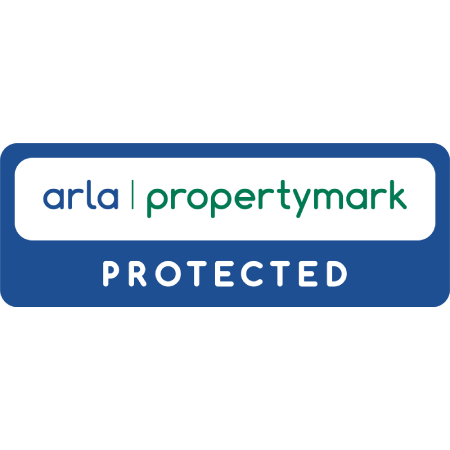Yes, because there are genuine benefits in efficient and professional care of your property investment. You can, of course, manage any rental yourself, and save an agency fee. The more important question is whether you have both the time and the knowledge to do so. Most owners want maximum return with minimum involvement in the day-to-day process. Letters provides that.
Finding suitable tenants and supervising their rental period requires close, personal attention and you may prefer less direct involvement. Year-round occupancy is crucial to profitability. Our experience and property marketing tools help to maintain your regular rental income.
Laws governing Landlord responsibilities and the safety of rental property inevitably change. We constantly monitor them to ensure your compliance and help you avoid the risk of prosecution or considerable financial penalties.
By choice, we are members of the Association of Residential Letting Agents, and are committed to their clear, professional standards and published bylaws. You can check the details at any time on the ARLA website, www.arla.co.uk.
Client Money Protection safeguards all funds that are rightfully yours, and ARLA will help you retrieve any that’s owed in the unlikely event of a problem. There’s no wriggling out of responsibilities from us. Our professional indemnity insurance is carefully maintained.
Paying less is not the same as seeing value. We have to be competitive. A cheaper rate may not include the financial protection you rely on, nor the service levels you’d expect. Ask about ARLA membership, Client Money Protection and Professional Indemnity Insurance. Look for tangible evidence of considerable experience in this increasingly complex industry. Be sure the price you’ll pay delivers all the benefits of effective agency involvement.
The short answer is ‘realistically’.
Prospective tenants usually spot over-valued properties, so they often take longer to let. And whether a higher rent is suggested to gain your instruction, or through the agent’s lack of knowledge, several weeks worth of valuable rental income is lost.
We don’t believe in wasting either your time, or your money. Our estimate of an achievable rental figure will be based on hard evidence from analytical reports on current trends in the local market. It’s about seeing the bigger picture of annual income, and the overall value from Letters – an experienced, client-focused agent.
Know your market. A realistic rental figure is the most obvious way to attract viewers. Then, you can gain advantage in a number of ways through a better understanding of the most likely tenant group: young professional couples, singletons, new families, etc. This may be influenced by location and the established community. Our local knowledge and advice will certainly help you present your property in the most favourable way.
Yes. Please get their permission first and tell us of any special conditions that apply. They may ask you for a copy of our Tenancy Agreement and we’ll be happy to send one, on request.
As the Landlord, you are responsible for insuring the building at all times, and must tell the insurance company that the property is to be let. If you fail to do this any future claim may be refused. We can arrange competitive insurance policies on your behalf, so please ask for details if you’d like our help.
No. In most cases we recommend letting the property unfurnished. In practice, tenants expect you to leave existing carpets, curtains and a cooker. If you prefer to offer the property partly or fully furnished, consider the type of tenant you will be looking for and what their practical needs and style preferences are likely to be.
Although a furnished let may justify a higher rent, it could also increase your responsibility for ongoing repairs. Wear and tear to the furnishings will be greater too, significantly reducing their lifespan. We’ll be happy to advise you on the best way forward.
Yes, it’s the law that an annual safety test is carried out of all gas appliances in the property. You must obtain a new certificate every year, issued by a Gas Safe registered engineer. We can arrange this for you.
As a Landlord your legal duty is to ensure that all appliances – used or brand-new – provided for your tenant must be professionally tested for safety. The fixed installations in the house must also be safe and periodically tested. This is only a summary of the detailed regulations applying to residential let properties, we can give you advice and arrange this for you.
Yes, at least one must be fitted, tested and working on each floor of your property at the beginning of the tenancy (a record of the test date must be kept by us). If you have solid fuel appliances, a carbon monoxide detector must to be fitted in every room there is an appliance.
Yes; and every year. A “competent person” must identify areas where water could lie for long periods and allow the health-risk bacteria to grow. We can explain the requirement details in more depth, and then manage all the inspections if you prefer.
Currently valid for ten years it is an assessment of the property’s energy performance. The property will be graded in much the same way as an appliance, with A being the most efficient, down to G. Energy Performance Certificates (EPCs) are required by law for all properties that are let out. We can arrange this for you.
All prospective tenants are personally interviewed, and the information provided is fully verified. This detailed referencing is conducted in-house; relying on over 29 years’ experience to see that they meet our criteria. Each application is reviewed by our Office Manager before our recommendation is given to you.
Where applicants fail to meet our basic criteria, full settlement of rent in advance can be obtained for the tenancy term if approved by the Landlord.
Information updates are vitally important to a Landlord, so we’ll provide you with feedback after every tenant viewing. Once the property is let we’ll promptly report any maintenance issues and any rental arrears (Full Management Service).
Within ten working days of receipt, directly into your bank account via BACS.
We have our own, in-house warranty option. On payment of a monthly fee, we will pay the rent to you, for up to twelve months, and pay for necessary legal costs. We believe our product to be the best available as there is NO EXCESS to pay and we undertake to pay the rent to you within 15 days of non-payment by the tenant. Please contact us to discuss this in more detail.
The tenants are responsible for the settlement of telephone, electricity, gas, water rates, Council Tax and TV Licence.
At the start of every tenancy we collect a deposit equal to five weeks rent, to be used in the event of breakage or damage caused. As members of the Government-approved The Dispute Service, we take and hold the deposit to meet the requirements of the deposit regulations. It is held in a designated Client Bonded Account and will be apportioned and returned only after the property is vacated and checked (Full Management Service).
Letters will attempt to arbitrate for 10 days. Then, if a satisfactory resolution has not been agreed, either party can refer the matter to The Dispute Service for independent arbitration. We deal with the whole process on your behalf and, depending on their workload, it can take two to three months to complete. You will not be asked to pay any costs for this. This service is provided as part of our Managed Service.
Within our Full Management Service, Letters can order immediate repairs upon request from the tenant who identifies a repair need, and subject of course to your agreement.
Yes. Our tenancy agreement allows us, or the landlord, to inspect on giving reasonable notice – usually not less than 48 hours. Typically we request such visits in writing to avoid any misunderstanding. We schedule regular periodic visits to the property and send you a general report (Full Management Service).
You have two choices:
1. Renew the tenancy for a further period of, say 6 months. This offers security as both you and the tenant are bound to this length of tenancy.
2. Do not renew the tenancy on paper. This allows the tenancy to continue on a statutory periodic basis. Ideal if you want the tenancy to be flexible.
You will have to pay tax on any profit made from your rented property. Day-to-day running expenses (including agents’ fees) can be deducted before preparing your tax return, so be sure to store your financial records securely.
We recommended that you use a qualified accountant to assist with your tax returns, particularly if you have more than one property.
Your letting agent must retain tax payable in advance on your rental income in the UK and pay it to the Inland Revenue on a quarterly basis. However, you can apply to HMRC to receive rental income free from deductions. If you intend to live overseas, we can provide you with application forms and guidance. Detailed information is also available on the HM Revenue and Customs website at www.hmrc.gov.uk. For more details, just ask a member of the Letters team.
Certain properties are identified by the local authority as requiring a Selective Licence. This will entail further costs to obtain a licence from Peterborough City Council together with the requirement to adhere to their guidelines and rules. Please contact us to discuss this further and if this applies to a property you already own or are considering purchasing





